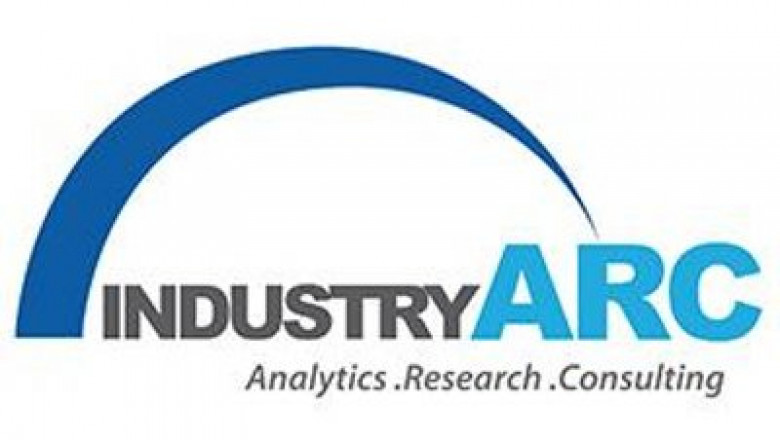views

Global ERP Software Market size is expected to reach $48.21 billion by 2025, growing at a CAGR of 7.88% during 2020-2025. In 2019, ERP implementation has become the best practices to bring and automate all business operations into a single and simple solution. By 2018, the worldwide penetration of ERP software in small and medium sized organization was low due to high cost of deployment. However, with the advent of cloud based ERP, the cost of ERP deployment have been decreasing continuously. Hence, the cloud based ERP is experiencing rapid growth among SMEs since 2018 and is expected to capture more than 40% market share by 2025.
Report Coverage
The ERP Software market report: “ERP Software Industry Outlook– Forecast (2020-2025)”, by IndustryARC, covers an in-depth analysis of the following segments of the ERP Software Market.
Key Takeaways
- North America dominates the ERP software market owing to rising preferences of companies towards cloud ERP.
- The rising penetration IoT based devices and large volume of data generation in manufacturing sector are creating new opportunity for ERP software market.
- Cloud based ERP is expected to accelerate the ERP software market at a faster pace due to low cost deployment
- The lack of flexibility and the integration issue is likely to inhibit the ERP software industry growth.
- The need for integration of all individual business operation into one single unit is likely to increase the demand for business management software, database management software, and ERP HR module.
End User Type - Segment Analysis
The ERP software for manufacturing industry is expected to grow at a CAGR of 9.45% during 2020-2025. The rising data consumption in manufacturing industry have made the ERP system an essential component to integrate its data from various departments. Most of the manufacturing industries are now integrating all their business operation through business management software, database management system, and ERP HR module. Rising adoption of IoT based equipment in industrial application are continuously increasing the data consumption in manufacturing industries. The Industrial IoT market is expected to reach $100 billion by 2025 growing at CAGR of 18.56% during 2020-2025. These new sources of data from IoT devices need an efficient ERP system to be analyzed. Advanced ERP systems, such as Microsoft Dynamics 365 can take advantage of its secure and scalable cloud platforms like Microsoft Azure to analyze these data and achieve various industrial activities such as remote monitoring, predictive maintenance, and stream analytics.
Deployment Type - Segment Analysis
The cloud based ERP is gaining popularity owing to low cost of deployment. Similarly, with the cloud based ERP, scale up and scale down of businesses can be achieved easily. Thus, cloud based ERP software is considered to be the most effective deployment platform by many small and medium sized enterprises in recent time. Cloud based ERP is expected to grow at a CAGR of 11.56% during 2020-2025. In 2019, approximately 80% of companies worldwide were using some form of cloud based services, out of which 15%-20% companies are likely to choose 100% cloud based services in next 5 years. It is also expected that by 2020, 60% enterprise software will be fully cloud based.
Geography - Segment Analysis
In 2018, North America dominated the ERP software market with a market share of more than 35.23%, followed by APAC and Europe region. The growing adoption of cloud based ERP software are driving the ERP software market in this region. North America accounts for majority of the cloud traffic globally. According to the Cisco Global Cloud Index, the cloud traffic in the region is poised to grow at a CAGR of 24% during 2016-2021 and will account for nearly 40% of the global traffic by 2020. Similarly, the rising adoption of hosted and managed services is accelerating the demand for cloud based ERP in the region. In 2019, approximately 65%-70% of businesses are using some form of managed services in North America Region, making the region highly potential for ERP software market.
Drivers – ERP Software Market
· Rising demand for cloud based ERP in SMEs
Since 2016, most of the industries and enterprises are replacing their on premise software with cloud based software. The cloud based ERP provides access to entire enterprise applications at an affordable price without any substantial upfront expenditure in software and hardware. Similarly, the adoption of cloud computing enable enterprises to scale up and scale down their businesses more conveniently. Hence, cloud based ERP is becoming a more useful and cost effective solution for SMEs in recent time. In addition to this, cloud based computing offer new business capabilities and opportunities for the SMEs. As per major ERP solution providers, cloud based ERP solution can reduce the cost of ERP deployment by approximately 40%. Many startups are investing into this technology looking at the future opportunities and hence, end users are now finding a large number of options to choose their vendors. In 2018, Icertis, a Cloud-based enterprise technology startup has raised $50 million in its fourth round of fund raising.
· Growing number of data centers
Data Centers are designed to support business activities and applications such as ERP and CRM. In addition to this, The ERP system itself maximizes space, cooling, asset utilization in data centers. With the growing data centers, the ERP applications are finding enormous growth. Since 2017, the volume of data consumption have increased significantly in the wake high speed internet connection, rising industrial automation, and increasing penetration of mobile devices. The rise of the data volume are creating enormous opportunity for both ERP and data centers market. Colocation data center installations are expected to be driven by the industrial sector, which is one of the largest generators of data. The companies in this sector are increasingly digitizing their operations and services, resulting in their increased dependence on ERP systems. Process and manufacturing industries are taking the path of industrial IoT to improve operational efficiencies, which will result in generation of large amount of data and have a positive impact on ERP software market. The Industrial IoT market is expected to reach $100 billion by 2025 growing at CAGR of 18.56% during 2020-2025. Thus, with the evolving big data concept in enterprises and businesses, the ERP software market is likely to find opportunity during the forecast period.
Challenges – ERP Software Market
· Integration Issue and lack of flexibility
ERP can provide the best outcome in businesses, if it is integrated with company’s right division/segment. In most of the cases, it is difficult to identify the division to be integrated with ERP organization that can help company to gain a competitive advantage. For instance, large organization where different business divisions consider themselves as competition find ERP is a risky solution to integrate their business segments/divisions. Similarly, An ERP system may not necessarily fully compatible with company’s existing business process and may require a re-engineering of steps to complete business assignment. Thus, organizations who have resistance to change don’t prefer ERP system.
Market Landscape
ERP software top 10 companies include SAP, Oracle, Intuit, FIS Global, Fiserv, Cerner Corporation, Microsoft, SS&C Technologies, Infor, and Constellation Software. The top 5 players ERP software market share is estimated to be approximately 31.45% in 2018. Acquisition, partnership, and service differentiation are the key strategies adopted by most of the companies in this market.
Acquisitions/Technology Launches
- In 2018, Salesforce bought MuleSoft for $6.5 Billion. It will help the company to integrate all of its cloud-based apps with MuleSoft's Software-as-a-Service (SaaS) integration platform.
- In 2019, SAP completed the acquisition with Qualtrics. This will help SAP to increase its capability in experience management category.












